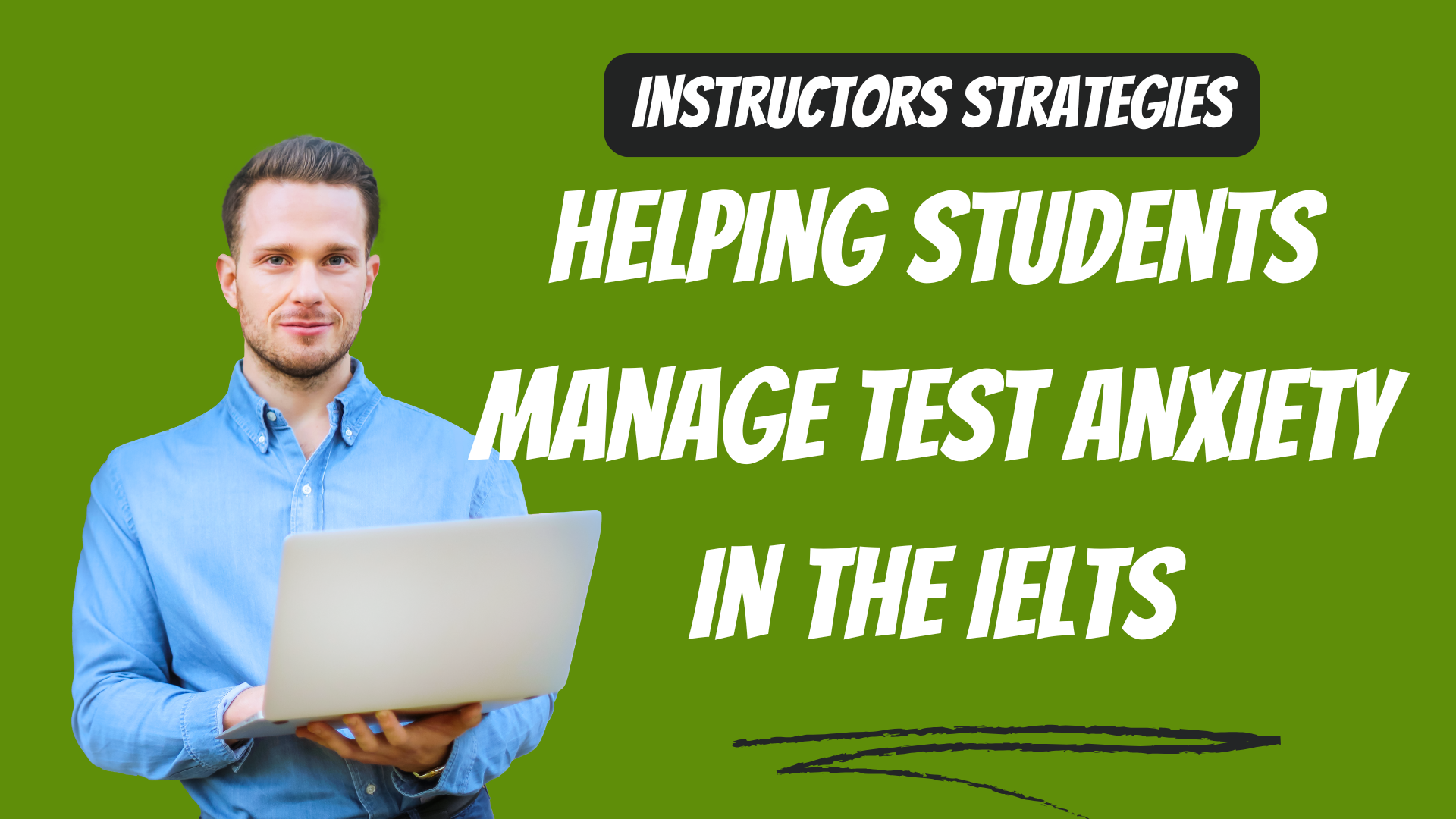Helping Students Manage Test Anxiety in the IELTS
The International English Language Testing System (IELTS) is a crucial step for many seeking academic or professional opportunities. However, the pressure to perform well can lead to significant test anxiety. This blog post provides instructors and students with practical strategies to manage and overcome anxiety, ensuring a smoother and more successful IELTS journey.
Understanding IELTS Test Anxiety
Test anxiety is a common experience, characterized by worry, nervousness, and fear of failure. For IELTS students, this can manifest as:
- Fear of the Unknown: Unfamiliarity with the test format and question types.
- Pressure to Perform: The high stakes associated with the IELTS score.
- Time Constraints: Worry about not completing sections within the allotted time.
- Perfectionism: The desire to achieve a perfect score, leading to increased stress.
Strategies for Managing Test Anxiety:
-
Thorough Preparation:
- Familiarize yourself with the test format: Understand the structure, question types, and timing for each section (Listening, Reading, Writing, Speaking). Practice with sample tests under timed conditions.
- Focus on areas of weakness: Identify areas where you feel less confident and dedicate extra study time to them.
- Develop a structured study plan: Create a realistic schedule that incorporates regular study sessions and breaks.
-
Mindfulness and Relaxation Techniques:
- Deep breathing: Practice slow, deep breaths to calm your mind and reduce physical symptoms of anxiety.
- Meditation and mindfulness: Regular meditation can decrease stress and improve mental well-being.
- Positive affirmations: Repeat positive statements to boost confidence and combat negative thoughts.
- Visualization: Imagine yourself confidently completing the exam.
-
Healthy Lifestyle Choices:
- Adequate sleep: Aim for 7-8 hours of quality sleep before the test.
- Balanced diet: Maintain a healthy diet with essential vitamins and nutrients.
- Regular exercise: Physical activity releases endorphins, which reduce stress and improve mood.
-
Time Management:
- Pace yourself: Avoid dwelling on a single question for too long.
- Allocate time strategically: Prioritize tasks and allocate time based on difficulty.
- Monitor the clock: Keep an eye on the time, but avoid fixating on it.
-
Positive Self-Talk:
- Challenge negative thoughts: Replace them with positive and empowering statements.
- Focus on your strengths: Remind yourself of your preparation and abilities.
-
Exam Day Strategies:
- Arrive early: Allow ample time to get to the test center and settle in.
- Stay focused: Concentrate on one question at a time.
- Take mini-breaks: Use short pauses to stretch, breathe, and refocus.
For Instructors:
- Create a supportive learning environment: Encourage open communication about anxiety.
- Provide realistic expectations: Help students understand that some anxiety is normal.
- Offer practical strategies: Teach relaxation techniques and time management skills.
- Focus on progress, not perfection: Celebrate effort and improvement.
Conclusion:
IELTS test anxiety is manageable. By implementing these strategies, both students and instructors can create a more positive and productive learning and testing experience. Remember to prepare thoroughly, practice relaxation techniques, and maintain a positive mindset. Good luck!
- Beyond the Basics: Mastering the Nuances of English Grammar
- Staying Motivated on Your OET Journey: Overcoming Challenges and Achieving Your Goals
- Writing Success in the OET: Essential Techniques and Templates
- Free OET Practice Resources: Sharpen Your Skills Before the Test
- Providing Effective Feedback to Improve Students’ TOEFL Scores


